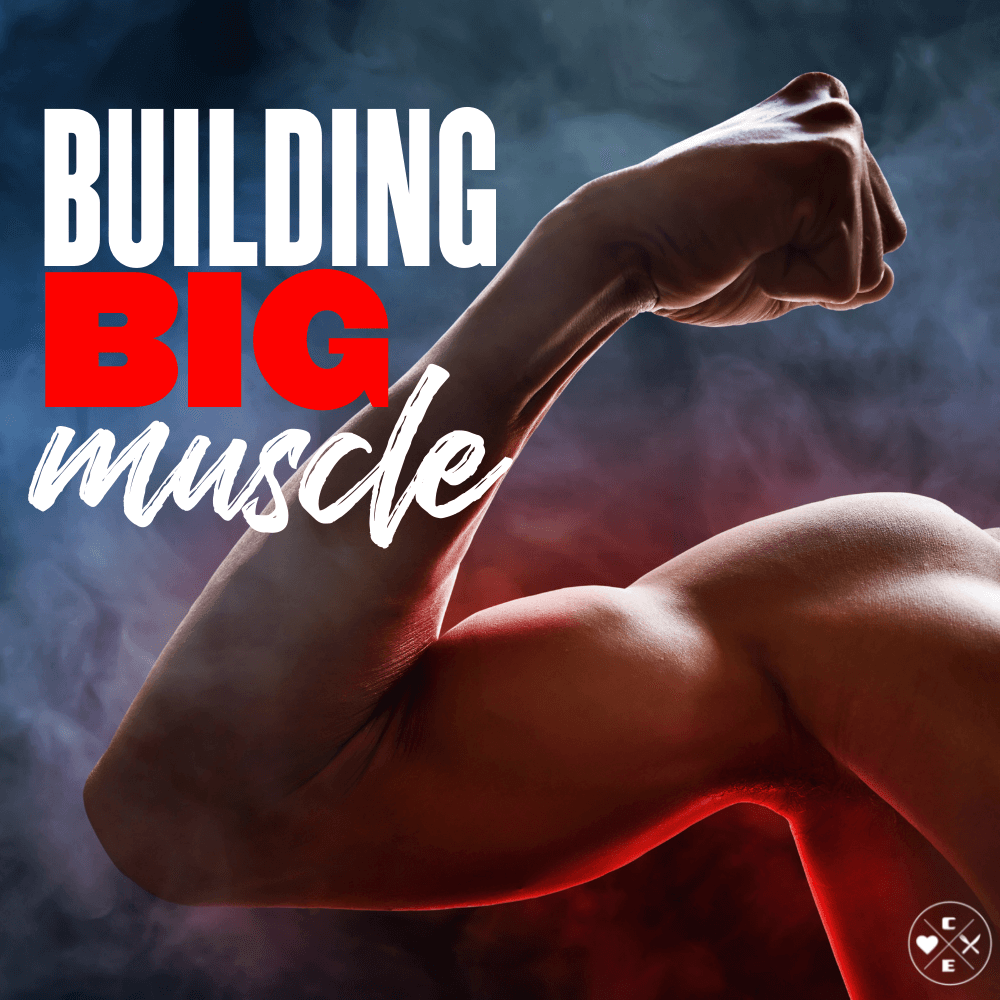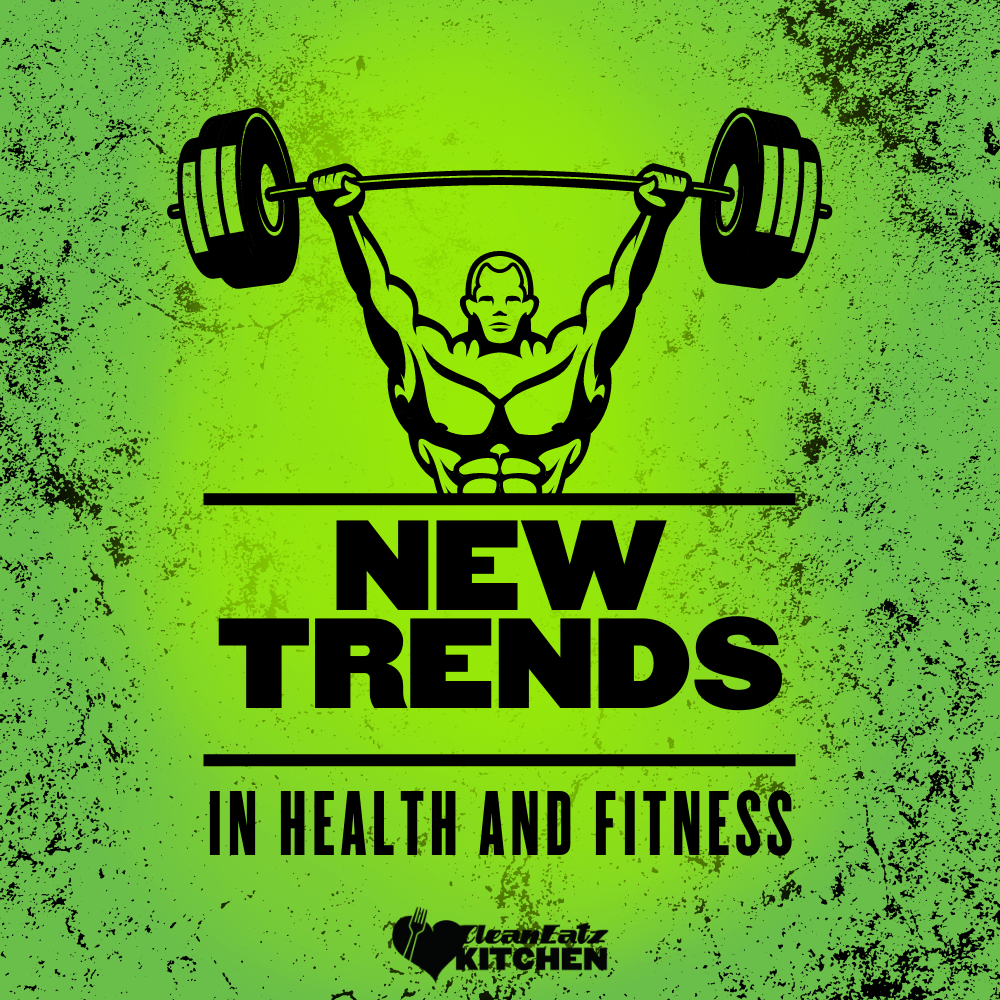
How to Gain Muscle Fast?
Jason Nista
Exercises & Fitness
5 minute read
Building muscle means following a good resistance training program. Of course, this means you'll need to consume extra calories to not only get through the workout but also have enough left over to continue adding weight. So how to gain muscle fast?
Let's discover how to gain muscle fast in this article.
Build Muscle Fast
The best way to put on noticeable muscle mass is to stick with strength and hypertrophy protocols. Hypertrophy-based protocols require 3-4 sets using a moderate weight (around 70-80 percent of your one-rep max). Studies have shown this type of training causes significant increases in the muscle-building hormones testosterone and growth hormone.
In between sets, make sure to give yourself 1-2 minutes of rest to help get your heart rate down. Keeping your heart rate lowered will help you protect those calories you're eating so you don't use them up while training.
The number of sets you do is just as important as the type of exercises you're doing to gain muscle. The best exercises for adding mass are big lifts, including:
- Squats
- Bench presses
- Deadlifts
- Rows
- Shoulder presses
In addition to big lifts, you also can do single-joint work. Leg extensions and leg curls can help increase strength and size, although not as much as compound movements. If you do both compound and isolation types of exercises, make sure you're doing the movements that target the largest muscle groups first. Save the isolation exercises for later in your workout. Accompany exercise with high-protein meals, you can build your meal plan now to get started!
Benefits of Building Muscles
One of the most crucial parts of long-term health and longevity is muscle maintenance.
While many people become hooked on which diet is best — such as paleo, keto diet, or low-carb — we know that doing so leaves out an important piece of the health and fitness picture.
Yes, muscle looks beautiful, but its worth extends far beyond its appearance. Here are 3 ways that muscle can help your body and mind:
Manage Blood Sugar
High-carbohydrate diets paired with sedentary lifestyles resulted in a diabesity (obesity and diabetes) epidemic. Approximately two-thirds of the population is overweight or obese, and one-third is prediabetic or diabetic.
Obesity and diabetes, on the other hand, are not usually linked. Approximately 20% of people with diabetes or prediabetes are at a healthy weight. A ketogenic diet could be used to completely eliminate carbs and so solve the blood sugar problem. Alternatively, you might eat fewer carbs and make room for them by growing muscle.
Muscle Increases Strength and Stamina
During the first few months of a weight-training regimen, you acquire strength but not much muscle tissue. During this adaptation phase, your neurological and muscular systems improve their ability to use the muscle you already have, even if it is limited.
You get a lot of strength without gaining any muscle. After you've exhausted your present muscle's strength limits, you begin to create more muscle. You see a bit more shape to your physique after a few more months of constant weight training and a high-protein diet, and your strength continues to increase. You also realize that you can endure more difficult workouts and recover faster than in the past.
Management of Body Fat
Muscle burns almost three times as many calories per pound as fat. As you lose body fat and gain muscle, your scale weight may not change, but you will notice a huge change in your appearance while simultaneously raising your resting metabolic rate.
As with muscle atrophy, metabolic rate declines with age. However, this does not have to be the case. Your exercise and dietary habits are far more important than your age. In fact, a fit 70-year-old may have a higher metabolic rate than a sedentary 30-year-old.
It's vital to note that if you do a lot of activity and eat a low-calorie diet to burn off excess body fat, you'll actually accelerate muscle loss and reduce your resting metabolic rate. To build lean body mass, use cardio sparingly and instead focus on strength training and a high-protein diet.
Final Thoughts
In conclusion, gaining muscle quickly necessitates a multifaceted approach that encompasses proper nutrition, targeted workouts, and ample recovery. Consistency in maintaining a well-balanced diet rich in protein, carbohydrates, and healthy fats is vital. Employing a structured exercise regimen featuring compound movements and progressive overload is crucial, as is allowing for sufficient rest and recovery time. Monitoring your progress, adapting your approach, and exercising patience are key factors in achieving rapid muscle growth. Remember, there are no shortcuts and dedication to a holistic fitness program is the surest path to your desired results.
FAQ
How important is rest and recovery in muscle gain?
Rest and recovery are vital. Overtraining can lead to injury and hinder progress. Aim for 7-9 hours of quality sleep per night and incorporate rest days into your workout routine to allow muscles to repair and grow.
What should I do if I hit a plateau in my muscle gains?
Plateaus are common in fitness. To overcome them, consider changing your workout routine, increasing the intensity, adjusting your diet, or consulting a fitness professional for personalized advice.
Can women gain muscle as fast as men?
Women can certainly gain muscle quickly, but their potential for muscle growth may differ due to hormonal differences. However, with proper training and nutrition, women can achieve impressive muscle gains.
Is it possible to gain muscle fast while staying lean?
It is possible to gain muscle while minimizing fat gain, but it requires a well-calibrated diet and training plan. A moderate calorie surplus and balanced macronutrients can help achieve this balance. Tracking your progress is essential to fine-tune your approach.
Related Articles
Couples Training Tips
8 minute read
Family Workout Ideas
3 minute read



